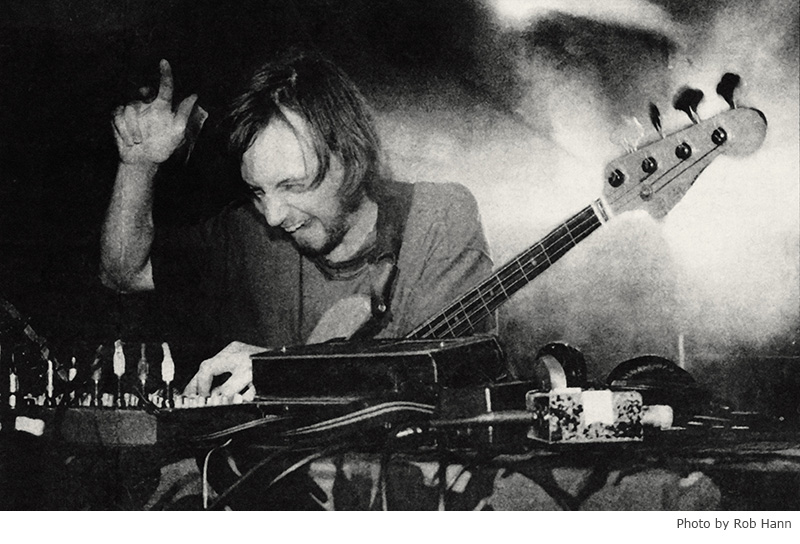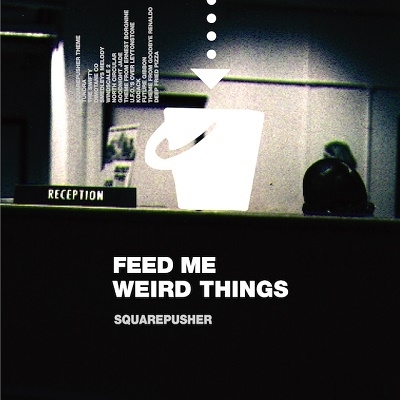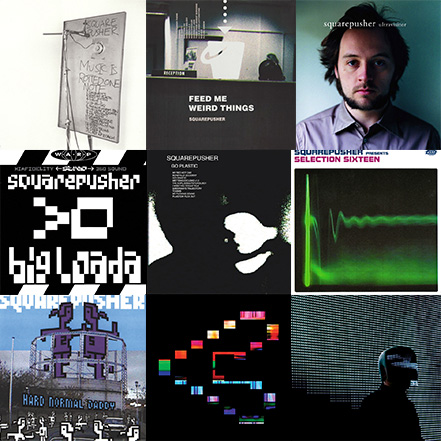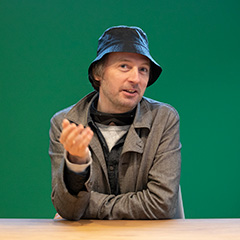MOST READ
- The Jesus And Mary Chain - Glasgow Eyes | ジーザス・アンド・メリー・チェイン
- Free Soul ──コンピ・シリーズ30周年を記念し30種類のTシャツが発売
- interview with Keiji Haino 灰野敬二 インタヴュー抜粋シリーズ 第2回
- Beyoncé - Cowboy Carter | ビヨンセ
- CAN ——お次はバンドの後期、1977年のライヴをパッケージ!
- Columns ♯5:いまブルース・スプリングスティーンを聴く
- interview with Keiji Haino 灰野敬二 インタヴュー抜粋シリーズ 第1回 | 「エレクトリック・ピュアランドと水谷孝」そして「ダムハウス」について
- interview with Toru Hashimoto 選曲家人生30年、山あり谷ありの来し方を振り返る | ──橋本徹、インタヴュー
- interview with Martin Terefe (London Brew) 『ビッチェズ・ブリュー』50周年を祝福するセッション | シャバカ・ハッチングス、ヌバイア・ガルシアら12名による白熱の再解釈
- 壊れかけのテープレコーダーズ - 楽園から遠く離れて | HALF-BROKEN TAPERECORDS
- Jlin - Akoma | ジェイリン
- 『成功したオタク』 -
- まだ名前のない、日本のポスト・クラウド・ラップの現在地 -
- interview with Mount Kimbie ロック・バンドになったマウント・キンビーが踏み出す新たな一歩
- exclusive JEFF MILLS ✖︎ JUN TOGAWA 「スパイラルというものに僕は関心があるんです。地球が回っているように、太陽系も回っているし、銀河系も回っているし……」 | 対談:ジェフ・ミルズ × 戸川純「THE TRIP -Enter The Black Hole- 」
- Chip Wickham ──UKジャズ・シーンを支えるひとり、チップ・ウィッカムの日本独自企画盤が登場
- Bingo Fury - Bats Feet For A Widow | ビンゴ・フューリー
- みんなのきもち ――アンビエントに特化したデイタイム・レイヴ〈Sommer Edition Vol.3〉が年始に開催
- interview with Chip Wickham いかにも英国的なモダン・ジャズの労作 | サックス/フルート奏者チップ・ウィッカム、インタヴュー
- Beyoncé - Renaissance
Home > Interviews > interview with Squarepusher - スクエアプッシャー、原点を語る
interview with Squarepusher
スクエアプッシャー、原点を語る
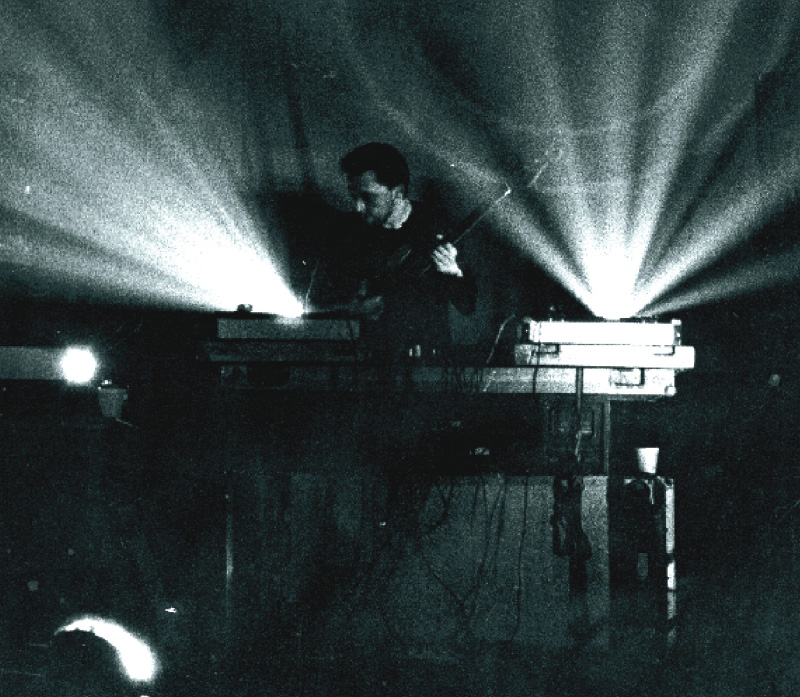
interview with Squarepusher
by James Hadfield
When he enrolled as a student of Fine Art at London’s Chelsea College of Art and Design, Tom Jenkinson took out the largest student loan he could get and blew the whole thing on second-hand gear. His £1,400 cheque was enough to buy a used Akai S950 sampler, two drum machines, a mixer and a DAT recorder, which played integral roles in the music collected on his 1996 debut album as Squarepusher, “Feed Me Weird Things.” At the time, Jenkinson seemed to be part of a wave of musicians who were taking the language of rave music and twisting it to weirder ends, putting him in the company of the likes of Luke Vibert, μ-Ziq — and, of course, Aphex Twin. The way he pushed breakbeats to insane speeds or turned them into silly putty was typical of what would soon be known as drill’n’bass, but his music was distinguished by its prominent use of electric bass, which he played with a virtuoso flair that made Jaco Pastorius comparisons inevitable.
Appearing at an experimental electronic night at a North London pub in 1995, Jenkinson had the good fortune to catch the ears of Aphex Twin himself, Richard D. James, who would go on to release “Feed Me Weird Things” on his Rephlex label. James chose the track selection and wrote the album’s ecstatic liner notes (sample line: “When Mr. Jenkinson is conducting, the rest of the world is in the pit”). The following year, Squarepusher released his first album on Warp Records, “Hard Normal Daddy,” whose blend of frenetic drum programming, jazz-fusion excess and twisted humour led some enterprising wags to dub him the Frank Zappa of jungle. But its 1998 follow-up, “Music Is Rotted One Note,” pulled a volte-face – the first of many – by swapping the sequencers for analogue instruments and a sound rooted in musique concrète and electric-era Miles Davis.
For all the variety of Jenkinson’s subsequent work – from landmark Warp releases such as 2001’s “Go Plastic,” to albums for solo bass (“Electric Solo Bass 1”), organ (“All Night Chroma,” with James McVinnie) or androids (“Music for Robots,” with Z-Robots) – he’s maintained a distinctive voice throughout. And on “Feed Me Weird Things,” that voice was already fully formed. The album’s 25th anniversary reissue comes with new liner notes by the man himself, offering geeky breakdowns of each track in a “Sound & Recording”-style tone that stands in contrast with the often rudimentary techniques he’s describing. “Feed Me Weird Things” may sound like quintessential Warp-style IDM now, but it was also rooted in a DIY approach that owes as much to the 1980s indie scene.
On last year’s “Be Up A Hello,” Jenkinson dusted off some of the equipment he’d used during the early days of his career, delivering a set of twisted acid ravers that was among the most enjoyable things he’s done. Speaking via Zoom, he barely mentions the “Feed Me Weird Things” reissue, but is happy to talk at length about his teenage years, his relationship with the bass, and how those formative constraints have continued to inform his approach.
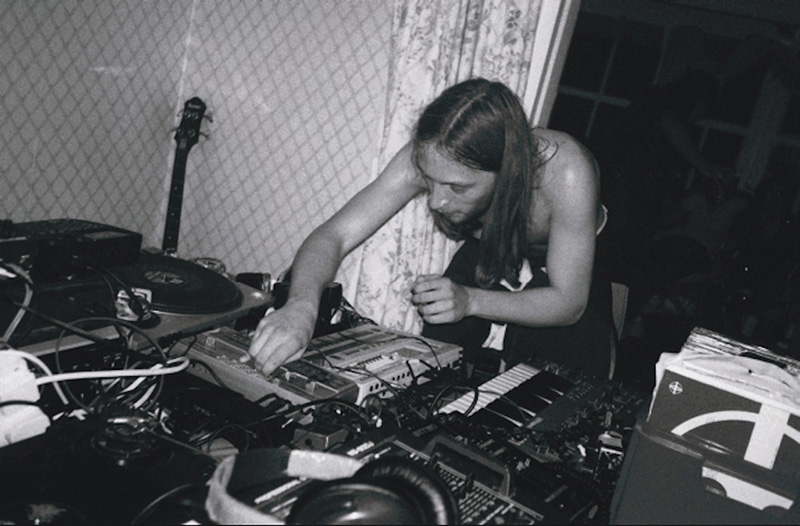
■How has the past year been for you?
TJ:It’s been, I suppose, novel in ways. One of the first things, for me, was just the terror of it all, which then became mixed with a sense of some sort of relief. I moved from a situation where it was looking like I would be on the road all year, to one where, more or less, everything was basically cancelled. And I’ve got to be honest with you: if I’m left to my own devices, that’s the perfect situation. I mean, the adult world just more-or-less ground to a halt. There were no conversations regarding further projects or anything, because nobody knew what was happening. It quite quickly gave way to a really lovely creative period.
■Oh, nice!
TJ:Yeah, and it was, in a sense – and I don’t mean this in any way to trivialise the horror of what’s been happening over the last year – but it was kind of like a second childhood, you know? It was suddenly like, there I was, working away on my stuff, and the adult world, in inverted commas, just receded to such a distance where there was no longer a sense of it having any real relation to what I was doing. I’m pretty keen on preserving that state anyway. In normal times, it’s more of a deliberate attempt to kind of push it to a safe distance, but in the case of the pandemic, it did it of its own accord.
■Have you found yourself gravitating in any particular direction over the past year or so, in terms of what you’re working with, or what you’re trying to create?
TJ:Just following on from “Be Up A Hello,” in a general sense. And I’ll be completely frank with you: I think it’s very much part-and-parcel with the sense of the adult world receding to such a distance, where it was just no longer really a feature of my day-to-day life or thinking or conversations, that I correspondingly just kind of went back into this [state of] “Ah, let’s just mess about!” You know, there’s no big thing to do here, there’s no big project. Let's just play around, you know? To an extent, that was already what was underpinning “Be Up A Hello,” because that itself was precipitated by a couple of life events that were quite severe, and it just led me to kind of have a restart, and just go back to first principles. Fun stuff.
■Have there been times in the past where what you were doing really didn't feel fun?
TJ:(Laughs) That’s a good question. No, I admire that. Because, yeah, let’s face it: it would be ludicrous to expect that across... I mean, it’s 26 years of what you might call a “career,” and actually much longer than that if you count all of the lead-up when I was a kid. Certainly, very early on, before career days, fun was what drove it. That was what got me running home from school and wanting to pick a guitar up: it was the sense of enjoyment. It didn’t feel vocational – it didn’t feel aspirational, even. I didn’t start, even, with the idea of being any good, it was just like: “I love this thing, and I love the sounds it makes” – a very, very elemental approach to it. Of course, things developed from there, and I would hasten to add that it is always something I’ve got my eye on, to retain as much of that as I can. I mean, at 46, you can’t expect to have the mentality of a 10-year-old boy.
■(Laughs) Sure...
TJ:But I’ll be honest: I will try and preserve as much of it as I can, because for me, that is the root of it all. It’s the lifeblood. Put it like this: I would have a rule where, if I’m playing an instrument and it’s just not working – I’m not enjoying it – it’s like, “You know what? I just have to walk away.” Because you end up hearing it: you hear the struggle, and you hear the resentment, or the boredom, and it translates. The peculiar thing is, once in a while, you'll be sitting there hating it, and you think: “I’ve just got to get through this. I hate it, I’m going to delete it, but I need to get to the end…" And then the next day, you listen to it and think: “Wow. That’s pretty good, actually.” (Laughs) But in general, yeah, I’m not one for sitting there suffering. It’s just not the basis of it, for me. It really isn’t.
I always say this in interviews, because it’s so true: the enthusiasm is the root of it, and everything stems from there – and I feel like sitting there, slogging away and just grinding yourself into the ground, is just killing that. And it doesn’t kill it just that day: it kills it, potentially, for days and weeks. Programming is the side, perhaps… I was actually doing something yesterday, and I just walked away, because it was like: this is a chore. One day, I hope I will have an assistant. Not to palm off, but I think some of these things would be perhaps more pleasurable done in collaboration. But that would be changing the habit of a lifetime. We’ll see.
■But you have worked with people at some points, right? You had the band [Shobaleader One]...
TJ:Yes, absolutely.
■...and you had the period [circa 2008’s “Just A Souvenir”] when you were playing with that drummer, the Bolt Thrower guy.
TJ:Alex Thomas. Yeah, yeah. No, and those have been great times, but I’ve never had a technical or an engineering collaborator, really. I guess, if a collaboration is to happen, [playing with other musicians is] what comes most naturally to me, because then I’m referring back to teenage years, when a lot of my musical activity was playing in bands. That was the principle thing I was doing in those days, so it’s just re-energising a strain of my work that was always kind of there anyway.
■Sure, sure. So when you were playing as a teenager, the way that you gravitated towards bass: was that because they needed a bassist in the band, or was it really like the instrument itself was drawing you in?
TJ:The instrument came first, and then I got into playing with bands, but it was the instrument that started it. Actually, I didn’t start on bass. The received wisdom at the time was that any branch of the guitar family that you eventually want to pursue, you’re best starting with classical acoustic guitar. And, you know, I was 11: I didn’t really have the grounds or the knowledge to argue with anyone – and also not the money. Even a cheap electric guitar was a different kind of commitment. I got my first classical acoustic for 15 quid, and of course, it was not a great instrument in any way, but it served to open the door.
But I was always being pulled along by, not just bass, but the electric instrument world. That was what fascinated me, is the sort of timbre, the amplitude, and the drive that seemed to me synonymous with those instruments. I didn’t even know what bass was. And, certainly when your ear is not trained to listen to it, it’s not always an instrument you can really pick out, so that intrigued me. It’s like, “What does this thing do? What is its register, and what are its possibilities?” And there were moments where it was clear. Thinking back, like on Paul Simon’s album, “Graceland,” which was a massive album – it was actually illegal not to know it, somehow, it was just so ubiquitous – there was that single with this amazing, amazing bass player [Bakithi Kumalo]…
■“Call Me Al,” right?
TJ:Yeah, exactly, “You Can Call Me Al.” So it’s got these two bars of, basically, bass shred in the middle of this pop song. It’s like: “What’s that!?! That sound is COOL!” It’s got this kind of percussion thing, but it’s also melodic. It just captivated me: that register, doing something interesting. Still, I think, to this day, my music is kind of flipping that top, melodically oriented approach that you’ll hear across classical, across pop, across jazz, whatever – where the top is kind of where the business happens, and the lower registers are the foundation. I’m fascinated by activity in the low registers, and quite a lot of the time, the upper registers are more placid, in my stuff. Somehow, it just suits my temperament. But anyway... so the bass is the thing that pulled me in.
There were other things – like, for example, the Hendrix performance at Monterey [1967 Monterey International Pop Festival]. I had a video tape of a bit of that, and it really entranced me. This moment where he sets the guitar on fire: it’s such a limitlessly interpretable thing. I mean, it’s kind of funny, I guess, and perhaps a gimmick, but for me, I still think back to it and it makes the hairs on my neck stand up. It’s the central symbol of rock, and here it was, being smashed to pieces and set on fire – and the fascinating thing being the sound it was making at the time. It’s an endlessly fascinating thing, of what an instrument does when you mistreat it. I didn’t have the finances – or the petrol – to do that to my guitars when I was a kid. (Laughs)
Anyway, whilst Hendrix is doing this, Noel Redding kind of takes the lead, and he turns up the tone control on his bass, and suddenly it’s really clanging away in the background. It’s really exciting. So again, that was another thing that pulled me in. I thought: “Oh, bass can sound really hard and aggressive as well.” So that was it: I was sold. And then the next opportunity came around, I saw one in the local paper for 70 pounds, complete with amplifier, so I jumped in.
■When it came time for you to start working on Squarepusher stuff, was there ever any question in your mind about whether or not you should incorporate the bass into it, or was that just kind of like a natural thing for you from the start?
TJ:Well, yeah, because what became Squarepusher is just an outgrowth of what I was doing as a kid anyway – i.e. just laying my hands on whatever instrument I had, or what I could borrow. Even up to the days of “Feed Me Weird Things” and beyond. I’ve been reminded of this recently, because I’ve been, in some interviews, talking about the technical side of that record, and actually it’s like a third of the equipment on this record is borrowed. (Laughs) It’s funny. That’s basically how it was: “Oh, can I borrow your guitar amp? Can I borrow your drum machine? I just want to try this thing…" So that was the story all the way through. I’ve borrowed guitar pedals, and – not to my credit, but – I’ve still not given them back. (Laughs) And I’m still using them on “Be Up A Hello,” so there’s some justification, even if it’s fundamentally wrong.
I remember, I made a snare drum out of a biscuit tin, but filled it with drawing pins, and then I made a skin on the top of the tin from criss-cross insulation tape. I didn’t know what, really, the elements of a drum kit were, in those days. “There’s a sound – typically on the second and the fourth beat – that’s kind of got this fizz, it’s like ‘pssh, pssh.’ What’s that? It’s like a drum, but... how do you make a fizzy drum?” And so, I was like, “Well, I don’t know, put drawing pins in a biscuit tin, and then a thing on top, so you can hit it?” And it was OK! It sort of worked. It was just very, very primitive early on, when there was zero budget, and really not much other than a cheap guitar, but that’s just kind of the mentality.
I’ve got no specific interest in labouring this point in itself, but I do think it’s interesting if you compare that to the situation that an aspiring musician would be in now – which I think is better, frankly – where if you’ve just got a laptop, you’ve got access to basically an endless array of sound-making tools. It’s a fantastic situation to be in. And it’s only looking back to those years – it’s not even 40 years ago – and it was very, radically different.
But going back to your question: the bass was just one of the things that I had to have. In those days, I didn’t have an electric guitar, so I didn’t have that scope to explore the upper registers of an electric instrument, but I would kind of, “Well, let’s go right up the top of the neck of the bass, just to try and make it sound like a guitar” – and of course, it doesn’t quite sound like a guitar, but it does something else, which is quite interesting. That led me to explore chords, and polyphonic stuff, and different right-hand techniques, which eventually led me to do stuff like the solo bass record that was released in 2009 [“Solo Electric Bass 1”]. So it was just really an outgrowth of that sort of jumble sale attitude and aspect of how things were being done.
A little bit later, parallel to playing in bands, my friends and I would put on parties locally – you know, the local YMCA, or the local football club was a good place. We did a lot of parties down there. We’d just fill it with dry ice, and play whatever the latest rave records were that we had at the time. I started taking my bass along, just to jam along top, to bring some different aspects to it. Whoever was on the decks might be playing breakbeat records and mixing those up, and I’d just jam along the top. It was really not a big jump from that to Squarepusher. That’s kind of the elements of it, set right there.
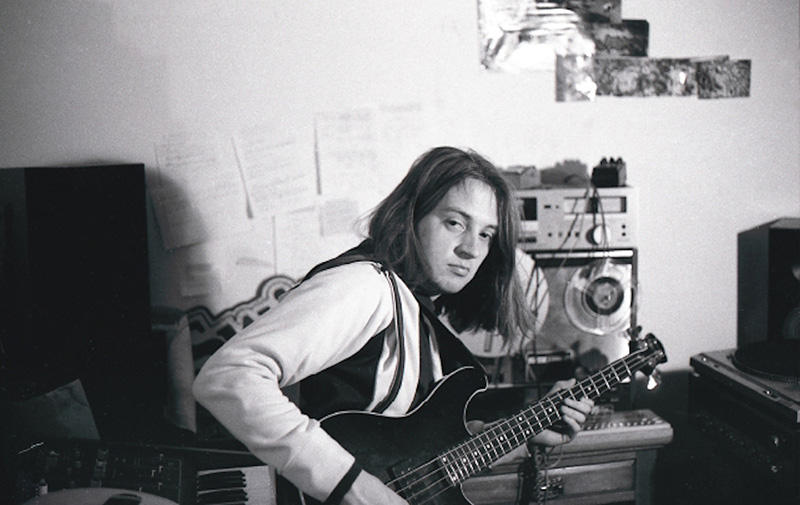
■Thinking back to when you first came on the scene, I’m not sure if there were really many people who were trying to do dance-rooted electronic music with live instrumentation in that way. You were really kind of out there on your own, weren't you?
TJ:Yeah... it was instructive, because I backed away from that world fairly quickly afterwards, but it seemed to me – at least among certain British critics – that [my approach of taking] elements that they perceived as coming from jazz and from fusion jazz, and mixing it with dance music, was kind of like, “What are you doing?” That’s kind of… probably either pretentious, or for comedy’s sake. And whilst I don’t deny that there is obtuse humour – amongst other things – in my work, fundamentally, that instrument wasn’t there just to kind of make a parody, or make fun of itself. I think that response – and it wasn’t, of course, the only response at all – was partly because of what you said: it wasn’t really happening.
But that novel aspect of it did lead, also, to some really great hook-ups. For example, I believe Talvin Singh – as much as he was drawing on different styles, different musical traditions – was perhaps doing something analogous with his tabla playing, and he was an extraordinary player. I got to meet him, just through randomly being at the same gig, but we immediately clicked because of that common approach. There were references to the dance music of the time, and of recent times, but also trying to find the the sweet spot of where a live instrument might connect with those things, and how one informs the other – because that’s, in the end, the beauty of it. And I think now we can see really tangible results of this, especially in a lot of modern drummers, where they now very, very clearly have taken away some of the... I’m not saying this to blow my own trumpet or anything – it’s not just me, of course – but you can see that they’ve taken something from the kinds of things that, for example, Talvin and myself, and other people, were exploring. And that has now kind of fed back in the reverse direction, which I think is a wonderful thing.
That feedback process was kind of happening internally as well for me. Going back to earlier teenage days briefly again: I would get a rave record, or something with a really fat bass line of some sort, like an acid track or something. Quite often, you’d find on those records – and I believe it might relate to the fact that those [producers] didn’t always have training on conventional instruments – that the note intervals are really psychedelic. It’s like a completely screwed-up scale. If you were to try to derive a scale from it, it would be quite a weird, like, two-octave scale, or maybe something that doesn't repeat. So trying to play those things would take your hand away from those “tramlines” that inevitably you kind of internalise, because so much music is in those particular modes, whatever it is, scales. They’re so prevalent, and you can't help [it]… you must know them, but they also produce their own sort of restrictions.
So trying to just play something like “Slam” by DJ Pierre [as Phuture], or “Box Energy” by DJ Pierre – I remember trying to work that out, and it’s like, “This is so fucking weird!” But in the end, when you’re playing, it’s like, “This is... it’s totally future.” And it’s really instructive, and it really can inform your playing in a very sort of lateral way. There’s so much received wisdom about how to play instruments, and so much fluff about, “Oh, it’s what the greats did, so if you want to be great, you've got to do what they did…" Actually, I think looking beyond that, and looking away from “greats," and looking just to sounds – not just from records that are nothing to do with that virtuosic tradition, but even beyond that entirely, to kind of environmental sounds – there’s as much, if not more, inspiration to be derived from that.
■It’s been interesting looking back at your career, how there’s been this kind of push and pull between some albums which were very much focused on the live element, and then others which were much more kind of happening within the box.
TJ:Yeah, absolutely.
■Even when you weren’t incorporating instrumentation, and doing stuff purely on computer, presumably the bass was still present in your life, just as something that you’d be playing anyway?
TJ:Yeah... of course, the amount of time devoted to just practice, it does vary. It varies for me. I’m sure someone who’s truly internalised professional attitudes probably has a rigorous approach to this stuff. I don’t: I just play when I wanna play. But in the end, there’s always kind of a bare minimum, beyond which you start to lose the stamina. But the other thing is... I’m speaking about the tramlines of structures and the scales and so on. I believe the way I relate to it – I’m sure many other people do as well – is that it’s not just that your fingers know where to go: they know where to go because there’s a mental map of the whole thing. So when you’re playing, you’re not telling your finger to go there, it’s just a picture in your mind, and you’re following the picture, following a different pathway around this kind of structural network. And that’s there, whether you’ve got the guitar in your hand or not.
■Right.
TJ:So, quite often, if I’m in a situation – waiting for a train or whatever it is – where you’re basically obliged to be somewhere but there’s nothing you can really do, I will quite often entertain myself by playing things, but just playing in my head. It’s basically the same thing: it's just without the instrument, but the sounds are still there, and the structure that I’m navigating is identical. That, of course, I think will also be present working on computer-based stuff, so the information will be sort of filtered through this structure. You might be able to pick it up: there are elements, for example, on “Damogen Furies,” where the melodies are very much the kind of thing I would play if I just picked up a guitar.
■Ah, okay.
TJ:This is what fascinates me, and sort of scares me about instruments. It’s not like as simple as you use the technology: the technology uses you. It sets up precedents, it sets up patterns, it sets up tendencies. Every instrument I use does do that, so there’s also parallel structures or networks that correspond to synthesisers, keyboards, drums – other instruments that I’ve got strong familiarity with, there are these analogous kind of cerebral representations of them. But they do act, also, as filters, which is why I’m always trying to fight against them. They’re not necessarily filtering: you can always think beyond them if you make enough effort. That’s why I’m talking about “tramlines.” It’s not that you have to follow them, but if you don’t make a specific effort not to, the path of least resistance is to follow in those established networks and paths, and that really, in the end, will be established by whatever you use.
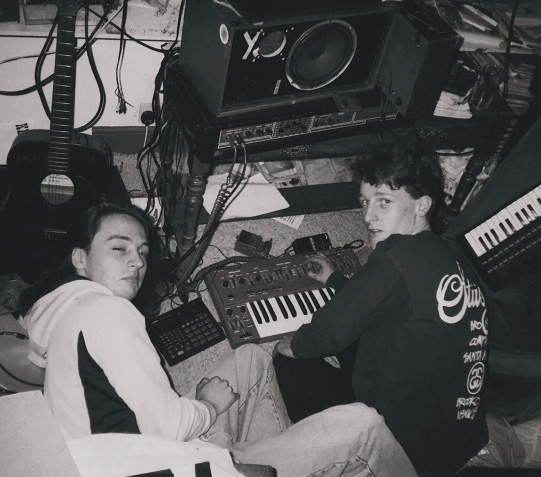
■So you haven’t been tempted to do an Ornette Coleman and start playing violin or something like that, just to completely pull yourself out of your routines?
TJ:I can’t actually name an activity I’ve done, certainly in very recent times, where that has happened, I admit. No, but I admire that mentality. I think it’s really essential, from time to time, to do this. Absolutely. Speaking of violin... Of course, there are similarities between that and a guitar, but the principle difference, I think – at least for me, when I pick up a violin family instrument – is that the strings are tuned in fifths, and on a guitar it’s tuned in fourths. So you can’t just apply those same structures I was talking about: it’s all shifted out of place into a new pattern. And so one of the ways that I try to interrupt that, and get to something like how it might be if I picked up a violin, is just to tune the guitar differently. It’s less radical, but it gets some of the way there. But I think a really radical thing would be for me to pick up, like, a wind instrument, because I’ve never done that. That would blow my mind, trying to do that! I’d love to.
■Oh yeah, you mentioned in the liner notes for “Feed Me Weird Things” that when you made “The Swifty,” your bass playing was inspired by saxophonists.
TJ:Yeah, that’s right. Exactly.
■But you’ve never gone there?
TJ:No, because fighting against this is a sort of… you might call it laziness. It’s this slightly ingrained tendency I have to make the best of what I have to hand in my immediate environment. My mentality, for better or for worse – as I said earlier – is born of this situation, where I had virtually no musical degrees of freedom around me. I would have, like, an acoustic guitar and a tape player, a couple of pedals – and then later, perhaps, a keyboard of some kind, whatever – but this very limited range of stuff, and I was trying to acquire things but had to accept the limits. And I think this has kind of set my attitude, in a sense. Look, I can indulge, go to a music shop, get something great and then [say], "Hey, look, I've got a new thing!” And of course, once in a while, that will happen: when I switched from 4-string to 6-string bass, it was a big step. “Why not? Let’s try this. Why not indulge?” Just temperamentally – and very strongly informed by that background – I don’t have that “making music with my wallet” [mentality]. I make music with whatever I have to hand. If I take any pride in any of it, I take pride in that. It’s like: “I can just pick that up, and I can make music.” Something of it is the spirit of punk, some of that independence of mine: the DIY thing, the thing of, like, “I don’t need a church organ, a 24-track tape, and a Neve mixer and a stack of outboard and a choir…" I don’t need that.
■You're not Rick Wakeman.
TJ:(Laughs) You know where I’m going! Exactly. I mean, whatever: he did his thing. But for me, that option was never there, and I’ve had to make the best of a different situation, and over time, I believe this is kind of cultivating the mentality that I think is best. I will say that: I think it’s better. Because I think relying on all this external stuff – relying on massive budgets, relying on a huge cast of staff – it just puts you at their mercy, and there’s something about that which alarms me. I don’t want my process to be vulnerable to other people’s whims, to their ideas about what sounds good, what their idea is about the amount of money it’s worth spending on it. I don’t want to think about any of that crap: I just want to get on with it, you know? But I think the flip of that is that I’m just not temperamentally inclined to indulge.
I get into trouble, because when you’re doing [interviews with] tech magazines, it’s like their whole thing – they are completely entwined with that industry, and the paradigm that “new instrument = new music.” It’s like: not necessarily. I don’t believe so. You can apply the same tired old habits to it, and in the end it produces more fucking irrelevant, flat, inconsequential music. Conversely, you can go to... well, joking about Rick Wakeman aside, you can [do what] a composer like Messiaen did, in a very broad and absolutely fascinating, inspiring body of work that he made for the organ – which was a centuries-old instrument, but suddenly, under his control, making sounds that were, to my mind, unprecedented. For me, there’s so much slippage between “new instrument, new music” that it’s... Yeah, okay. I get that a new instrument sounds different – a bit. (Frowns) That doesn’t fire me up, you know. It’s not the thing that gets me going.
取材・文:ジェイムズ・ハッドフィールド(2021年6月11日)
Profile
 ジェイムズ・ハッドフィールド/James Hadfield
ジェイムズ・ハッドフィールド/James Hadfieldイギリス生まれ。2002年から日本在住。おもに日本の音楽と映画について書いている。『The Japan Times』、『The Wire』のレギュラー執筆者。
James Hadfield is originally from the U.K., but has been living in Japan since 2002. He writes mainly about Japanese music and cinema, and is a regular contributor to The Japan Times and The Wire (UK).
INTERVIEWS
- interview with Larry Heard - 社会にはつねに問題がある、だから私は音楽に美を吹き込む ——ラリー・ハード、来日直前インタヴュー
- interview with Keiji Haino - 灰野敬二 インタヴュー抜粋シリーズ 第2回 「ロリー・ギャラガーとレッド・ツェッペリン」そして「錦糸町の実況録音」について
- interview with Mount Kimbie - ロック・バンドになったマウント・キンビーが踏み出す新たな一歩
- interview with Chip Wickham - いかにも英国的なモダン・ジャズの労作 ──サックス/フルート奏者チップ・ウィッカム、インタヴュー
- interview with Yo Irie - シンガーソングライター入江陽がいま「恋愛」に注目する理由
- interview with Keiji Haino - 灰野敬二 インタヴュー抜粋シリーズ 第1回 「エレクトリック・ピュア・ランドと水谷孝」そして「ダムハウス」について
- exclusive JEFF MILLS ✖︎ JUN TOGAWA - 「スパイラルというものに僕は関心があるんです。地球が回っているように、太陽系も回っているし、銀河系も回っているし……」 対談:ジェフ・ミルズ ✖︎ 戸川純「THE TRIP -Enter The Black Hole- 」
- interview with Julia_Holter - 私は人間を信じているし、様々な音楽に耳を傾ける潜在能力を持っていると信じている ——ジュリア・ホルター、インタヴュー
- interview with Mahito the People - 西日本アウトサイド・ファンタジー ──初監督映画『i ai』を完成させたマヒトゥ・ザ・ピーポー、大いに語る
- interview with Tei Tei & Arow - 松島、パーティしようぜ ──TEI TEI(電気菩薩)×AROW亜浪(CCCOLECTIVE)×NordOst(松島広人)座談会
- interview with Kode9 - 〈ハイパーダブ〉20周年 ──主宰者コード9が語る、レーベルのこれまでとこれから
- interview with Zaine Griff - ユキヒロとリューイチ、そしてYMOへの敬意をこめてレコーディングした ──ザイン・グリフが紡ぐ新しい “ニュー・ロマンティックス”
- interview with Danny Brown - だから、自分としてはヘンじゃないものを作ろうとするんだけど……周りは「いやー、やっぱ妙だよ」って反応で ──〈Warp〉初のデトロイトのラッパー、ダニー・ブラウン
- interview with Meitei(Daisuke Fujita) - 奇妙な日本 ——冥丁(藤田大輔)、インタヴュー
- interview with Lucy Railton - ルーシー・レイルトンの「聴こえない音」について渡邊琢磨が訊く
- interview with Waajeed - デトロイト・ハイテック・ジャズの思い出 ──元スラム・ヴィレッジのプロデューサー、ワジード来日インタヴュー
- interview with Kazufumi Kodama - どうしようもない「悲しみ」というものが、ずっとあるんですよ ──こだま和文、『COVER曲集 ♪ともしび♪』について語る
- interview with Shinya Tsukamoto - 「戦争が終わっても、ぜんぜん戦争は終わってないと思っていた人たちがたくさんいたことがわかったんですね」 ──新作『ほかげ』をめぐる、塚本晋也インタヴュー
- interview with Gazelle Twin - UKを切り裂く、恐怖のエレクトロニカ ——ガゼル・ツイン、本邦初インタヴュー
- interview with Nubya Garcia - ヌバイア・ガルシアのジャズにはロンドンならではの芳香が漂っている ──来日インタヴュー

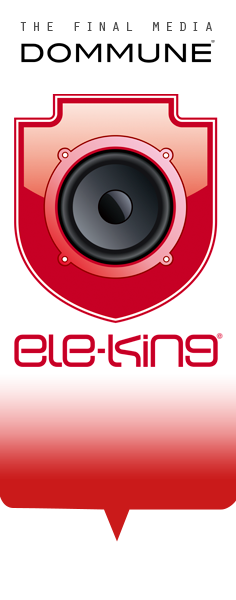
 DOMMUNE
DOMMUNE